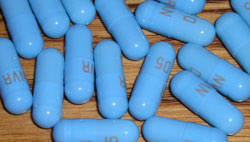
Top stories






More news














Although the proposed Zero VAT rating requested consideration for all medicines, it particularly targets Schedule 3 to Schedule 6 medicines, which are prescribed for serious illnesses. As indicated by the latest World Health Organisations WHO/HAI Global Pharmaceutical Policy Brief 5, taxes levied on medicines commonly make up 20 - 30 % of the final price consumers pay for medicines.
The NAPM strongly believes that reducing or removing taxes will reduce prices and greatly improve access to medicines for the vast majority of our population. In a country such as South Africa where less than 20 % of the population have access to private healthcare, the WHO report states that up to a staggering 48 % of household budgets are spent on out-of pocket healthcare expenses.
The NAPM believes that the economic and social impact on patients will be dramatic with an immediate decrease of medicine prices by up to 14%. These passed on savings on healthcare expenses could in turn be used towards education, savings, house bonds etc. and those with private medical aids would also benefit, as their medical aid expenses for medicines would allow for greater funding towards other medical aid benefits.
Although various methods have been put into place over the past twelve years, the most effective being the introduction of price control on medicines under the Single Exit Price legislation within the Medicines and Related Substances Act, the NAPM believes that Government should consider the benefits that will be reaped with the Zero VAT on medicines.
In the past three years, the annual increase has been limited to the consumer price index, but the competition generated by the introduction of generic medicines has caused the increases to be far lower. Mediscor PDM, an organization that manages medicine benefits on behalf of 1,7 million members of medical aid societies, reports in their latest review that medicine prices increased by under 2%.
According to IMS Healthcare, recognised world-wide for its analytics of the Pharmaceutical Industry, the Schedule 3 and above private market in South Africa is worth R19,9 Billion per annum.
Exemption of these products for VAT would therefore reduce the money to the Fiscus by some R2,4bn, however the NAPM believes that this would be counter-acted by:
• increased volumes leading to more taxable profit of manufacturers, distributors and retailers,
• less downtime from patients who are gainfully employed through greater access to medicines and improvement in productivity,
• less reliance on the public health system as out of pocket purchases would increase,
• a visible and timeous commitment by government to the Millennium Development Goals in Healthcare, and
• A reduction in medical aid contributions and hence the government need not increase tax exemptions for medical aid contributions.
The next step in creating access, which the Government intends introducing is, International Bench Marking where South African prices will be compared with the price of medicines in Canada, Australia, New Zealand, and Spain.
However with the dramatic depreciation of the rand against those countries is in the past eight months the NAPM believes that a far quicker and easier way of decreasing access is to reduce the VAT payable on medicines.
The Government has set a precedent with its application of the zero VAT rate on essential foodstuffs and as the NAPM believes that healthcare is a necessity and not a discretionary purchase, it can be argued that prescription medicines are even more essential than foodstuffs, especially so for seriously ill patients.
The NAPM reiterates our support for Government's goal of achieving greater access to medicines for the whole South African population and for this purpose that we have made the submission to the Davis Tax Committee.
For more information on the NAPM, its work and its current activities, visit www.napm.co.za